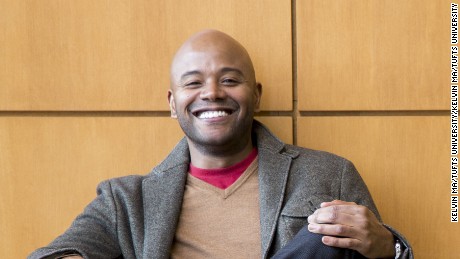On the surface, Hogan’s blanket order comes as a welcome relief in a time of racial division. The mere acknowledgment of Maryland’s role in the dehumanization of Black life represents a kind of progress. He announced the decision at a news conference for a historical marker erected for 15-year-old Howard Cooper who was lynched in 1885, which was inspired by the Maryland Lynching Memorial Project, part of sprawling local, state, regional and national efforts to compel Americans to acknowledge and seek to repair the ever-present legacy that these horrific murders reflect.
Hogan, who blasted Donald Trump’s presidency as “the worst four years for the GOP” ever, is considered somewhat of a political moderate. His status as a relatively popular Republican governor in a blue state has burnished his national reputation.
But for Black folks advocating racial justice, the details count.
The Maryland NAACP blasted Hogan’s pardons as “political posturing” devoid of the kind of policy substance that would protect living Black folks, rather than simply express public regret for those who have been unjustly killed.
Context matters here. Almost one month before announcing the pardons, Hogan vetoed three police reform bills, saying that he would remain open to what he characterized as “reasonable reforms.” The bills he vetoed (presumably because he didn’t consider them “reasonable”) called for, among other things, Maryland to equip all police officers with body cameras by 2025, design a statewide policy for the use of force and provide mental health assistance for officers. Collectively, these reform measures sought to foster greater accountability for police and to protect Black Americans vulnerable to police violence. If such measures are not considered “reasonable” then Maryland has little hope for effectively re-imagining public safety.
Pardoning already deceased Black victims of state-sanctioned violence is not enough. We can only honor the many thousands of African Americans unjustly murdered by lynch mobs and racial terror if we also pursue truth, justice and reconciliation in our own moment. Acknowledging the horrors of past racist crimes while refusing to confront the contemporary evolution of Jim Crow-era violence in our own time is worse than political posturing. It denigrates the memories of all those who have lost their lives to racial violence in America.
Americans are at a moment in our history when schoolchildren can be punished for wearing “Black Lives Matter” T-shirts. That reality warrants self-reflection and actions that go beyond feel-good symbolism.
This is not to suggest that symbolic gestures and public monuments acknowledging our history of racial injustice do not matter. Far from it. An important feature of last year’s racial and political reckoning focused on the role of statues, flags and plaques in commemorating (and in some cases, distorting) aspects of our larger American story. Some of those toxic markers started to come down.
But removing Confederate flags while increasing police budgets does not represent progress. Public supports for the sanctity of Black life must be matched by policy deeds. Hogan’s efforts to acknowledge one part of America’s long history of racial injustice while turning a willfully blind eye to another is two-faced. It demonstrates the danger of overreliance on public symbols of allyship without checking the receipts.
Contrast Hogan’s actions with long-standing efforts to acknowledge America’s grotesque history of racial lynching, most notably the opening of the National Memorial for Peace and Justice in Montgomery, Alabama. Founded in 2018 by Bryan Stevenson, the bestselling author, lawyer and criminal justice advocate, the museum has emerged as America’s first-ever national lynching memorial.
The museum documents the lynching of 4,400 people and, critically, offers local communities an opportunity to request duplicates of the steel columns that have the names of victims (some are marked unknown) to document the occurrences of lynching at the local level. This is a remarkable achievement, a living, breathing memorial that asks tough questions and offers a route toward redemption at the community level.
Hogan’s announcement, the Montgomery memorial and the clash between them illustrate an important tension in the movement for slavery reparations. The most talked-about part of this movement remains the calls for monetary repair. Reparations continue to gain momentum among congressional Democrats, with Houston based Rep. Sheila Jackson Lee the latest sponsor of HR 40 (in recognition of the broken government promise of 40 acres and mule to every Black family after slavery), a bill that seeks to finance a commission for the study of reparations.
First sponsored in 1989 by Michigan Congressman John Conyers, the bill now has 176 backers, an impressive sign of the times.
But beyond monetary reparations, and apart from whatever steps the federal government takes regarding slavery reparations, there is another, long overdue, need for reconciliation and acknowledgment in states, cities, suburbs and towns across the nation. In March of this year, the City Council in Evanston, Illinois, approved reparation payments of $25,000 for Black residents for down payments on homes to rectify a history of “discriminatory housing policies and practices and inaction on the city’s part.”
Hogan wasn’t wrong to recognize the power and importance of local action in working toward reparations. But Hogan’s racial moderation insults the intelligence of Black people by seeking reconciliation on the cheap. Performative allyship sets back efforts to build a truly beloved American community, one built on courageous, even dangerous, efforts to reveal the unfathomable depths of past racial injustice while grappling, with the same energy and insight, the contemporary dimensions of anti-Black racism that will not be quelled by moderation of any kind.







